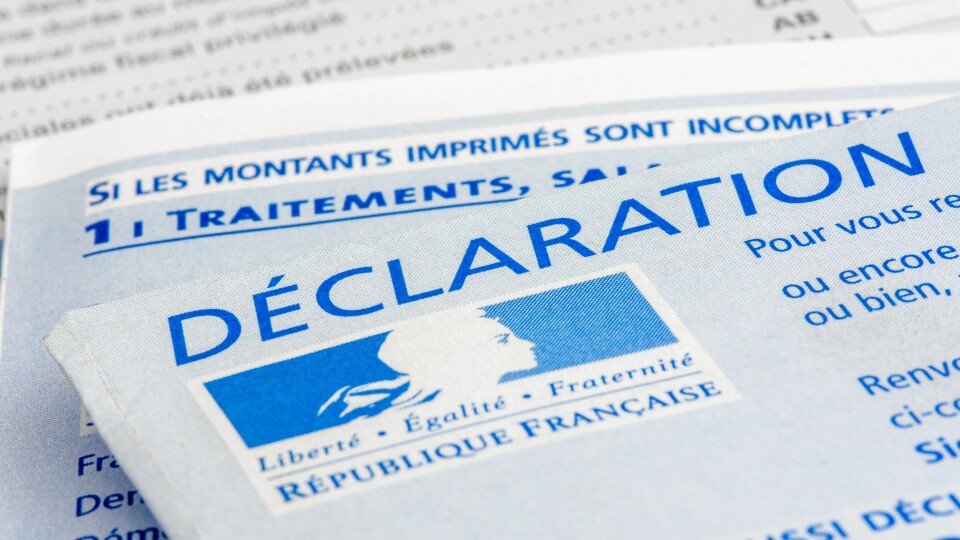-
Photos: forget Amsterdam - stunning images of France’s tulip fields in bloom
These spots in south-east France are showcasing a rainbow of bright spring flowers
-
List: Which departments have seen notaire fees increase – and where will they rise soon?
A third of departments will increase fees to new maximum by May 1
-
Map: where are there free motorways in France?
Only around one-quarter of France’s main road network is free from tolls
French tax declarations: Four common and costly errors to avoid
Partner article: Robert Kent of Kentingtons does not usually write about declaring tax but has seen too many ‘costly errors’ recently. He shares his four top tips

The Connexion asked if I would like to write something related to tax declarations, since that time is upon us again.
Usually, I would decline the offer – I am not in the business of tax administration as my expertise is focused on counsel.
A French accountant, meanwhile, will offer tax administration.
However, they only offer help calculating the bill and declaring it, without the absolutely vital financial/tax planning.
The reason I have decided to make an exception this year (hoping I avoid being inundated with tax form-filling requests) is that declarations have become increasingly complicated and we are seeing some costly errors, especially where investments are concerned.
I spoke to someone recently who confidently told me about their own declaration, which was dangerously inaccurate.
It made me realise many people could benefit from a steer.
What follows is not a ‘how-to’, but more a list of things to avoid.
1. Do not declare investment withdrawals as income
Do not confuse pensions taken in the form of ‘drawdown’, such as from a UK SIPP (self-invested personal pension), with investment withdrawals from schemes such as assurance vie.
A SIPP may be technically a pot of invested money, but drawdown money from it is still deemed pension income, and all of the money taken out of it in drawdown must be declared as such, as is the case with other pension income.
On the other hand, with withdrawals from assurance vie and similar investment schemes (which are declared in a different section, not as pension income) it is only the ‘gain’ part of the withdrawal that needs to be declared.
Usually, much of the withdrawal is deemed return of your capital, and is thus not assessable to tax.
A French provider will send you information detailing the assessable figure to be declared, usually around March or April.
2. Do not pay social charges twice
With the advent of fixed rates of tax under PFU (prélèvement forfaitaire unique), we have a set position, applied by default, which is 12.8% tax and 17.2% social charges, thus a total of 30%.
We have seen people enter their investment income on their declaration, however, not mentioning that social charges have already been paid at source, so they get applied a second time.
If making both the aforementioned mistakes in tandem, your tax bill is already going be astronomically higher than it should be.
3. Obtain reduced social charges if not in the French social system
Since 2019, those under the care of another state or not otherwise in the French healthcare system may be exempt from paying both the CSG and the CRDS.
On investment income, this is 9.2% and 0.5% respectively.
This means that social charges are reduced to 7.5% – just the prélèvement de solidarité.
However, the system is still what can only be described as messy.
Some financial institutions seem able to accept evidence of not being in the system and applying 7.5%, while others take the 17.2% as PFO (prélèvement forfaitaire obligatoire), suggesting you reclaim it from the tax office.
Where the taxable value is low, a claim may not be worth the trouble. However, it is good to know the amount you are losing out on if doing so.
I mention this as one of my clients was very anxious about their claim.
When I told them that, of their €10,000 withdrawal, only €800 was assessable and the extra 9.7% worked out as just €77.60, they visibly relaxed.
Clearly, for substantial withdrawals, though, especially if not in a French tax-friendly structure, the claim is important.
4. Declare foreign accounts
New arrivals sometimes find this out the hard (expensive) way: it is law that all accounts (of any nature) and life assurance investments abroad are declared each year.
Failure to do so will result in a financial penalty of €1,500 per account/policy per year not declared to the French tax authorities, or €10,000 if the account is in a country with which France has no information-sharing agreement.
A few years ago, we were contacted by someone with 16 undeclared accounts in the UK... ouch!
It is best to keep as few accounts abroad as possible.
his keeps administration down (someone with 16 accounts must complete the 3916 form 16 times) and reduces the risk of financial penalties.
These are the main issues we come across, but there are many more.
If you are new to France, it is very much worth having a French accountant complete your first declaration.
If you have been here a while and have been doing them on your own, it is still worth checking in with a professional to make sure you are not overpaying.
In general, you can go back and claim from the last three years, meaning amounts can be significant – and potentially more than the accountant’s bill.
Related articles
Help guide: Income Tax in France 2022 (for 2021 income)
Do I need to do French tax return if I only receive UK police pension?
How do I find and download the French income tax declaration form?
























